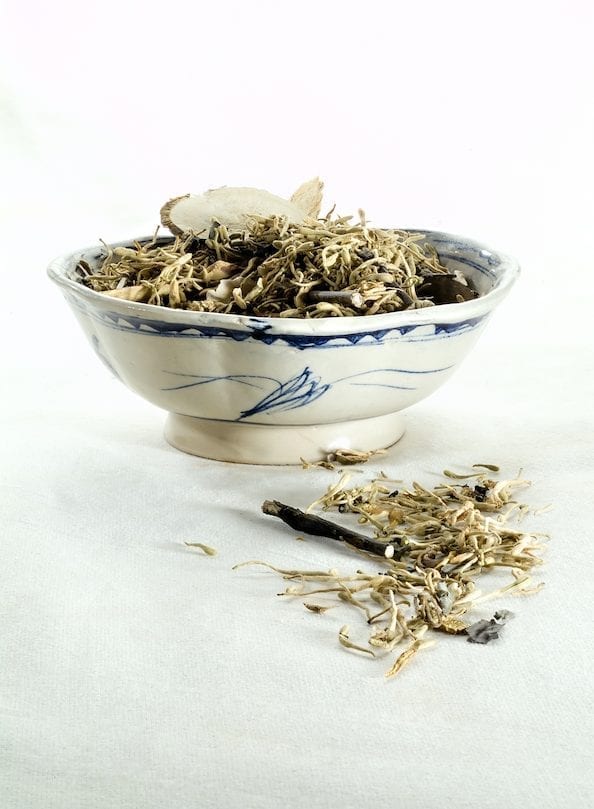Millions of people in the United States and around the world endure daily pains and discomforts due to back injury, strain, or disorder. Back pain has become more commonplace among those who primarily spend their working days in a seated or sedentary posture and with others who perform repetitive duties throughout the day. The demands of jobs may have changed considerably in the past two hundred years but the worker remains relatively the same. The ancient wisdom of Oriental medicine and Chinese herb therapy maintains its practicality and effectiveness for regaining the spine’s strength, stability, and flexibility.
There is the temptation among those afflicted to assume their circumstances are inevitable and unavoidable. Dulling the pain enough to continue with life becomes the foremost concern for many, yet these remedies do little to get to the root of the problem. Thousands are turning to physical adjustments from a Chiropractor to help with back pain. Manual manipulation is scientifically proven to help with spinal alignment and alleviate symptoms of sciatica, herniated disc, and other spinal conditions. However, without supplemental help to achieve balance in the human organ, hormone, and nervous system the pains will return.
Personalized Herbal Remedies in Chinese Medicine
The Chinese were not unique in using herbs, roots, and plants to assist in overcoming physical ailments. The American Indians, Greeks, and Middle Eastern cultures also relied heavily on natural remedies. In modern day India, much like Oriental medicine in China or Japan, the practice of Ayurvedic Medicine and herb therapy prevails over Western medicine. What makes Chinese herb therapy special is the advances made in combining herbs available to make a cocktail or tonic specific not to the condition of back pain but specific to the individual or patient. It is in this way that Chinese herb therapy can treat the cause of back pain and not just the symptoms.
If you think a career in holistic medicine is something you would like to pursue, contact us and speak to an admissions representative to get started on your new journey!
Understanding the Causes and Treatment of Back Pain
Back pain can be acute (disappearing on its own within three months), recurring (reappearing every three or four months), or chronic (always a factor). The leading cause of back pain today is muscle strain from bending or twisting, poor posture, and seated working conditions. The pain can sometimes be immediate as with injuries due to car accidents but typically it develops over a long period of time. Frequently the pain can be attributed to Nerve Impingement Syndrome (a pinched nerve in the spinal column) or a deteriorating condition of the vertebrae. Besides the pain itself tension, spasm, insomnia, and depression may follow. A good herb treatment will address all of these in relation to the patient’s viscera and internal milieu.
Many herbs use the same biochemical pathways as other pain relievers. In the short run they are typically not as invasive but they have myriad positive effects. The antispasmodic and circulation inducing qualities make up for pain suppression. Because Chinese medicine views the body as fully integrated, rather than a series of isolated systems that make up a whole, back pain is not only attributed to breakdown of muscles, bones, and tissue but also to improper organ function and flow of Chi and bodily fluids. If a patient approaches a Chinese Herbalist with back pains to sprain, strain, or injury as with work and sports the Herbalist may offer herbs to relieve blood stasis, dispel acid buildup, and facilitate the natural recovery process. In this way the spot of acute injury can receive the nutrients it needs to heal more rapidly. If a patient complains that cold weather makes their back stiff the Herbalist may give a mixture of herbs to dispel cold or dry up damp from the meridians brought on by external influence. In another instance where an individual complains of lower back pain the Chinese Herbalist may attribute this to a depletion of Kidney Chi or a urinary tract disorder and offer herbs to strengthen or remove damp heat. In TCM and herbal therapy incidences of back pain are hardly considered to be isolated events. Everything is a factor. The goal of Chinese herb therapy is to regain balance in all ways physical, chemical, and energetic.
Herbs are administered in a variety of combinations and ways. Today many roots and plants come in capsulated form and can be simply swallowed with water, thereby avoiding sometimes less than desirable or bitter tastes. Many naturopathic pharmacies make these herbs readily available; however, one should consult a trained herbalist to learn of contraindications when taking herbs for back pain and to receive the correct combination to suit there specific needs.
Featured Posts:

